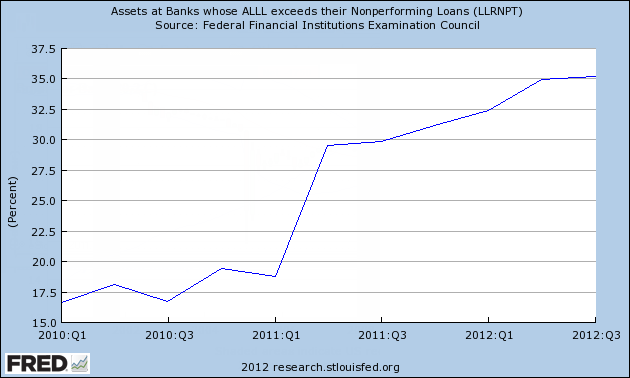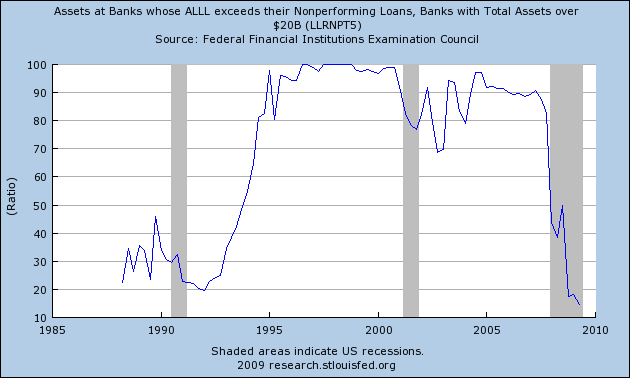
The Allowance for Loan and Lease Losses (ALLL) is similar to the allowance for doubtful accounts maintained by other businesses that extend credit to customers. At other businesses, these extensions of credit are accounts receivables rather than loans.
Because some outcomes may not fully pay, businesses try to predict, on an ongoing basis, the amount of loss in their accounts. They take periodic charges to earnings to better match losses to periods when they occurred. Banks do this as well. They use current income, through the provision for loan and lease losses, to create and build a reserve to absorb losses.
The ALLL can be increased another way. When the bank collects on previously charged-off loans, the amount recovered goes into the ALLL.
Charged-off loans decrease the ALLL. If a bank decides it has overestimated its potential loss exposure, it can choose to reduce its ALLL and add the amount to its income. This is known as making “reverse provisions” for loan and lease losses, because the bank decreases the allowance, or reserve amount, rather than increasing the provision. It is rare for a bank to make a reverse provision, however, because of the imprecise nature of determining an appropriate reserve.
One last point to remember with respect to the reserve is that the ALLL is a general reserve. Therefore, even if a bank analyzes and estimates the loss on each loan, the allowance is there to absorb all losses in the loan portfolio and is not specific to a particular loan.
In general, are you familiar with how your bank manages its ALLL on an ongoing basis?
http://www.stlouisfed.org/col/direct...eting_alll.htm





Because allowances for loan losses are a direct hit to earnings, and because allowances are at ridiculously low levels, bank earnings have been wildly over-stated. (Mish)

Analysis of bank proxy statements by research firm SNL Financial found Dimon's 2011 compensation package of $23.1 million tops among bank CEOs. His package was up 11% from 2010, when he was No. 2 in the pay rankings with $20.8 million in total compensation.